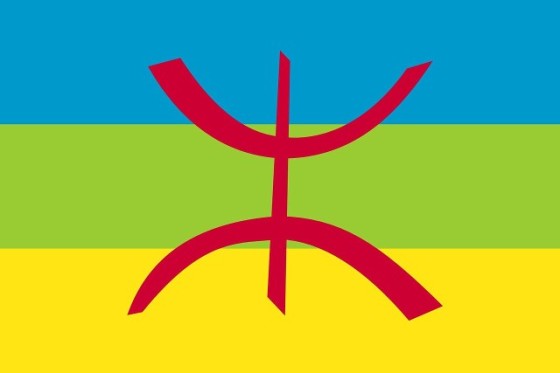So much of this is true for the Irish experience, with a remarkably similar timeline (we got the Christianists and they got the Islamists), apart from our success in resisting non-holy Roman colonization initially. For the Irish, our language is our soul, and is connected to our land (Tír gan teanga, Tír gan anam!) And then the colonizers religion invades our very identity, because another wave of colonization pits ‘us’ and the first colonization against ‘them’ and the second colonization, leaving us with some “neo-pagan” Druid silliness to “return” to if we bother to search at all. Thus the struggle for Irish indigeneity, and the modern appeal of atheism amongst the Irish.
But is spirituality a lived experience in relationship to land, life, and death? Or it is just preforming empty ceremonies, going through the motions? I think the former is true, and I love this part here, “we are not static or entirely dependent on the past. Imazighen are unable to worship the same gods as our ancestors, and in response we are creating our own systems of spirituality and belief that will allow us to move forward and shape our ongoing resistance to colonialism.”
On another level, I am fascinated by the “bioregional” nature of Tamazgha as reflected in this statement: “The land, too, is sacred and conceptualized in the political Amazigh imagination as Tamazgha, a region transcending the borders of modern nation-states. This is a re-indigenized spirituality, not developed by ‘going back’ and looking at pre-colonial religious beliefs, but by constructing the present material world around them as sacred.”
I am fascinated by the emergence of a North Africa ‘bioregion’. From a Cascadian perspective, there is an obvious difference in that our bioregional name has been appropriated (I prefer “reclaimed”) from Latin, whereas ‘Tamazagha‘ comes from the Indigenous Tamazight language. However, both bioregional appealatures emerged in the 1970’s from the counter-cultural movements of the time. If decolonization is as much a process of creation as it is deconstruction, then this all makes good sense.
Absolutely fascinated and inspired by the Amazigh People! More and better thoughts from me coming soon!
by Nuunja Kahina
How do you decolonize and return to your Indigenous spirituality if you don’t know what it is? At the beginning of this year, I wrote about the language question in Tamazgha (North Africa), the land of the Imazighen, arguing that decolonization requires the rejection of Arabic as a colonial language. This, however, is just one of many steps that must be taken. Interestingly, another Amazigh responded to my last article saying that Islam must also be rejected in order to achieve liberation. I am far more hesitant addressing the issue of religion in North Africa. It is not as simple and cut-and-dry as ‘reject colonial religion, return to Indigenous spirituality.’
Islam dominated Tamazgha after the Arab invasions of the 7th century C.E., and today the Amazigh population is overwhelmingly Muslim, adhering to a colonial religion. Yet even before the Arabs, there were significant Christian and Jewish populations…
View original post 932 more words


Pingback: Atheism as Cultural Imperialism | The Lefthander's Path
Guess I’m just a silly neo-pagan Druid then.
@caelsti I don’t mean to be demeaning. I only mean to express my distrust for how pervasive the “New Age” appropriation of Celtic spirituality is. It’s the same kind of “New Age” appropriation that causes many Indigenous friends to doubt much of “Native American” spirituality. I’m sympathetic to Celtic Reconstructionism. But I think I’m more optimistic about the sort of ‘existential spirituality’ described by this article.
If I don’t want to appropriate local Indigenous spirituality, and I question the legitimacy of Celtic spirituality outside of the Celtic homelands (because I personally see spirituality and place being connected), what is authentic then?
Pingback: All Wrong: Religion, Culture and Country | The Lefthander's Path